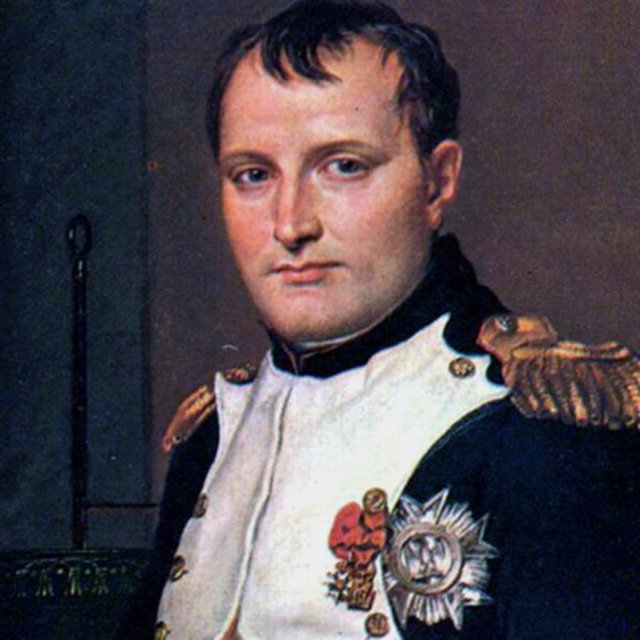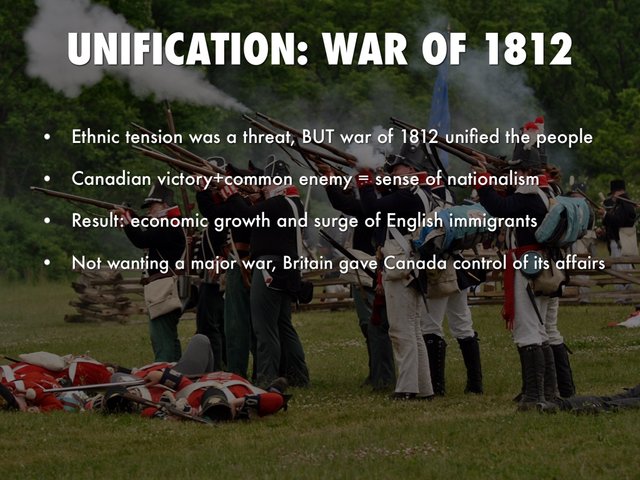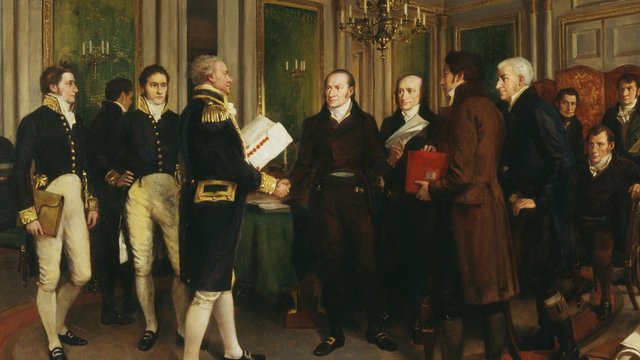WAR OF 1812 - History of USA #6
- INTRODUCTION
The War of 1812 was a military conflict fought between the forces of the United States of America and those of the British Empire. The US went to war mainly to force Great Britain to repeal its unfair regulation of American trade with the European Continent and to give up Impressments, the practice of removing seamen from US merchant vessels and forcing them to serve in the Royal Navy. Other hostilities with Great Britain that led to war dated back to the American Revolution. Britain had long maintained outposts in US lands in the Northwest Territory and enlisted the aid of American Indians to help fortify them. Many people who supported the war hoped to eliminate the British presence from North America together.

- BACKGROUND OF THE WAR OF 1812
Napoleonic Wars

Napoleon Bonaparte
The war in Europe had begun in 1799, when French army general Napoleon Bonaparte (1769-1821) seized power in France. An extremely effective leader, Napoleon soon was named emperor, ruling with unlimited power. Not content with ruling France, he set his sights on the entire continent of Europe. To start, he wanted control of the English Channel, the body of water that runs between England and France. England's Navy was much stronger than France's. Security control of the channel, England was able to avoid invasion. Napoleon's mighty army, however, defeated the Austrians and Russians and then Prussia. By 1806 Napoleon dominated Europe from the Atlantic to the borders of Russia. Still unable to defeat England, he decided to employ economic measures. He established the Continental System which forbade all European countries from trading with England. England, in turn, tried to choke off foreign trade with France.
- CIRCUMSTANCES BEHIND US INVOLVEMENT IN THE CONFLICT
Following were the circumstances behind the involvement of the United States in the conflict that erupted in 1812 between European countries (mainly France and England):
- Trade with France
- Impressments
- British support for Indian raids
- Economic conditions of the US
- Political Conflict faced by the US
- American Expansionism
- DECLARATION OF WAR
On June 1, 1812, President James Madison sent a message to the Congress recounting American grievances against Great Britain, though not specifically calling for a declaration of war. After Madison's message, the House of Representatives deliberated for four days behind closed doors before voting (79 to 49) the first declaration of war, and the Senate agreed by 19 to 13. The conflict began formally on June 18, 1812, when Madison signed the measure into law. This was the first time that the United States had declared war on another nation, and the Congressional vote would prove to be the closest vote to declare war in American history. None of the 39 Federalists in Congress voted in favor of the war; critics of war subsequently referred to it as "Mr. Madison's War."
Preparing for the war in 1812, the strength of the regular army was still under seven thousand, and its officers were either too old or too poorly trained to be effective leaders. The US Navy had only sixteen vessels to face Britain, the world's strongest Navy. Antiwar governors in Federalist New England states refused to detach their militias (group of volunteer soldiers) for federal service, stating that militias were emergency armies to be called upon to repel invasion, not to act in offensive moves. How to pay for war was another question. When Congress declared war, it had neglected to vote in taxes or come up with funds.
- THEATERS OF WAR
The war was conducted in three theaters:
- The Atlantic Ocean
- The Great Lakes and the Canadian frontier
- The Southern States

- TREATY OF GHENT, PEACE NEGOTIATIONS
Peace negotiations for the war of 1812 were concluded with the Treaty of Ghent, which was signed on December 25, 1814. The negotiations began in early August and concluded on December 24, when a final agreement was signed; both sides had to ratify it before it could take effect. Meanwhile both sides planned new invasions. The British began blockading New England port, reducing American foreign trade to a trickle but hurting British interests in the West Indies and Canada that had depended in that trade. New England was considering secession. Although American privateers found chances of success much reduced, with most British merchantmen now sailing in convoy, but they continued to prove troublesome to the British, as shown by high insurance rates, British landowners grew weary of high taxes, and colonial interests and merchants called on the government to reopen trade with the US by ending the war.
and asserted US
Treaty of Ghent singataries
The treaty basically affirmed the state of affairs before the war. European peace had solved the problem of impressments and neutral trading with France. During negotiations, the American diplomats stood firm against the British demands for territorial cessions and asserted the US's status as an independent nation that would not accept the violation of its rights or the humiliation of impressments. The glory to be found in the war's aftermath was that a nation only three decades old had held its own against a world power.
- CRITICAL ANALYSIS
Ending the war with neither side gaining or losing territory allowed for the peaceful settlement of boundary disputes and for the opening of a permanent era of good will and friendly relations between the US and Canada. The war established distinct national identities for Canada and the US, with a newly significant border. War ended in stalemate, with the Treaty of Ghent closing a fight that had become militarily inconclusive. Neither side wanted to continue fighting since the main causes had disappeared and since there were no large lost territories for one side or the other to reclaim by force.
- CONCLUSION
The Rush-Bagot Treaty was a treaty between the US and Britain enacted in 1817 that provided for the demilitarization of the Great Lakes and the Lake Champlain, where many British Naval arrangements and forts still remained. This treaty remains effective to date.
The Treaty of Ghent established the status quo ante bellum; that is, there were no territorial losses by either side. The issue of impressments was made moot when the Royal Navy stopped impressments after the defeat of Napoleon.
Before the adjustments between US & British North America were made in the Treaty of 1818, a border dispute along the Maine-New Brunswick border was settled by the 1842 Webster-Ashburton Treaty after the bloodless Aroostook War, and the border in the Oregon Territory was settled by splitting the disputed area in half by the 1846 Oregon Treaty.
You must be a history fanatic